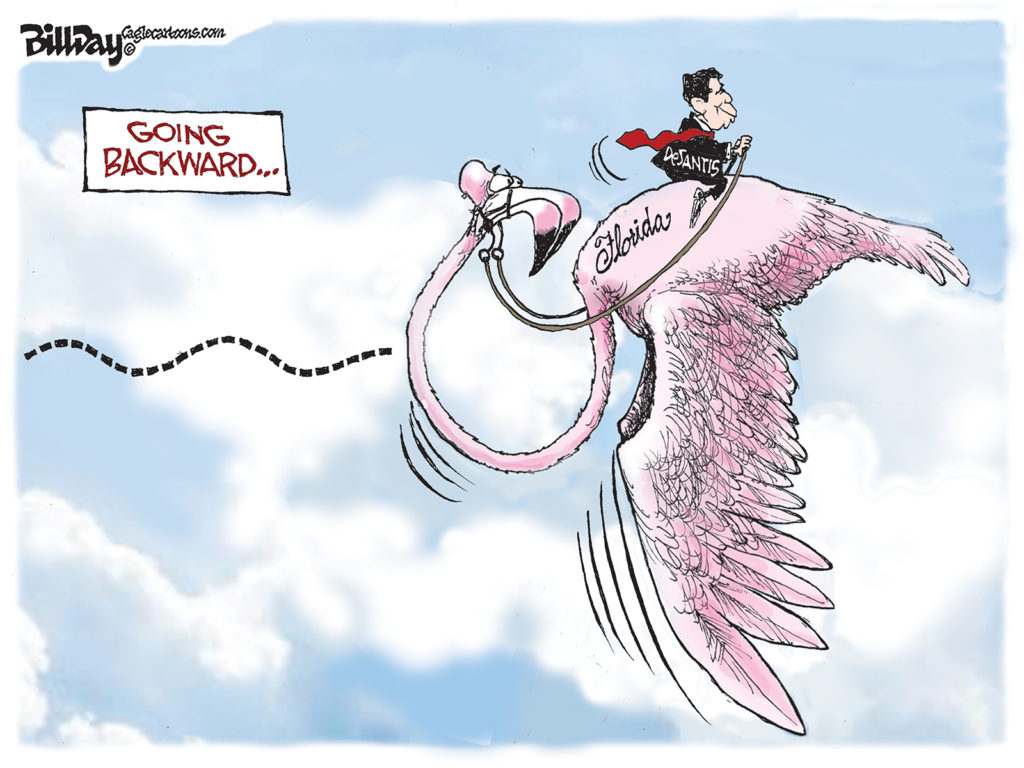By John O’Leary in governing.com:
When writing about how to enhance the performance of public-sector organizations, I am frequently accused of two things. I am accused of being an apologist for big government, because I often note the important functions of the public sector, and I am accused of being anti-government, because I often point out the limitations of the public sector.
The fact is, ideology is more of a hindrance than an enhancement when it comes to objectively analyzing the operation of public organizations. A person’s ideology influences what they see. It’s called confirmation bias. Our brains are literally hard-wired to focus on evidence that supports what we already believe.
In other words, you’ll see it when you believe it.
If you like government, you will see all the good it does in people’s lives. You will see the many hard-working teachers, cops and nurses who go above and beyond the call of duty. You will see all the problems of society and long for government to step in to make things better. You will see the myriad ways the private sector misbehaves in the absence of government regulation.
If you don’t like government, you will see the harm it creates in the form of taxes and the unintended consequences of various programs. You will see waste, fraud and corruption. You will see lazy public workers and venal politicians. You will see how the private sector serves the wants and needs of people and creates jobs — so long as the government doesn’t get in the way.
Confirmation biases makes it hard to have a constructive conversation about how bureaucracies actually work and how they could work better. It makes it almost impossible to separate an operational analysis from the politics lurking behind it. This faux debate muddies the water on any effort to consider the best manner to accomplish public tasks.
Consider some of the most pressing management topics facing public leaders: pay-for-performance, charter schools, privatization and outsourcing, compensation and pension design, collective bargaining, performance measurement, and accountability. These issues are nothing less than a political minefield.
Like everyone, I have my own ideas about the proper role of government. But I don’t feel as if I have to constantly behave as either a cheerleader for government nor as its perpetual critic.
We live in a “both/and” universe yet speak the language of “either/or.” Government both accomplishes important tasks and is frustratingly inefficient. There are both hard-working public employees and lazy public employees. Regulations are both necessary at times and overburdensome at times. When it comes to government, there is Yin and there is Yang.
Instead, we are offered only extreme choices in black or white terms. Government is either good or bad, so which side are you on?
Consider the notion of accountability in the public sector. To some, the term represents a pipe dream of bumbling bureaucracies masquerading as well-oiled machines by adopting the language of the private sector. To others, the term “accountability” is a code word for punishing public employees, a way to undermine support for public institutions by adopting the hard-nosed language of business prior to making devastating cuts, or shifting to a privatized model of service delivery.
So, which is it? Is public-sector accountability a pipe dream, or an excuse to gut government?
How about this instead: Accountability should be both an aspirational goal and an enduring challenge for every public institution.
From a prison to a public school, from the local library to the Food and Drug Administration, every public agency should be striving to deliver public value commensurate with the resources consumed — and more. This goal should guide our efforts, even though we recognize that measuring results and delivering results can be a nearly impossible task in the public sector because of the challenges of measurement.
Debates about the proper role of government are an important aspect of our democracy. But when ideology gets in the way of thinking about how we might be able to improve the way government works, that’s a problem.
So take off your ideological blinders and take an honest look at your organization. Maybe accountability just means taking a hard look at how your agency works and striving to make it work better.


